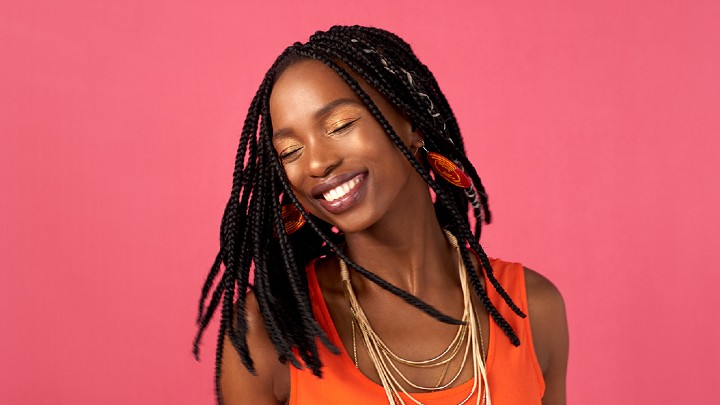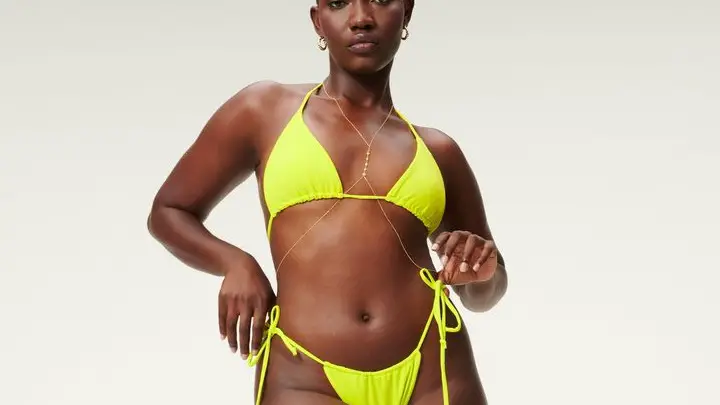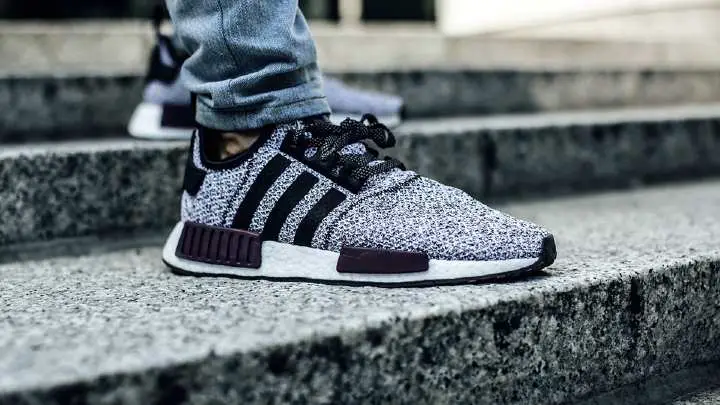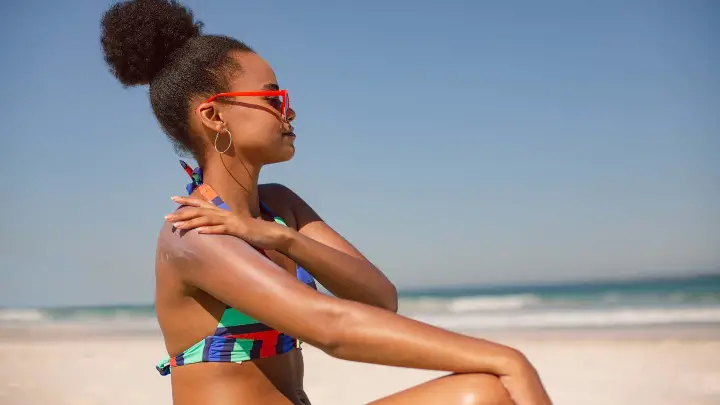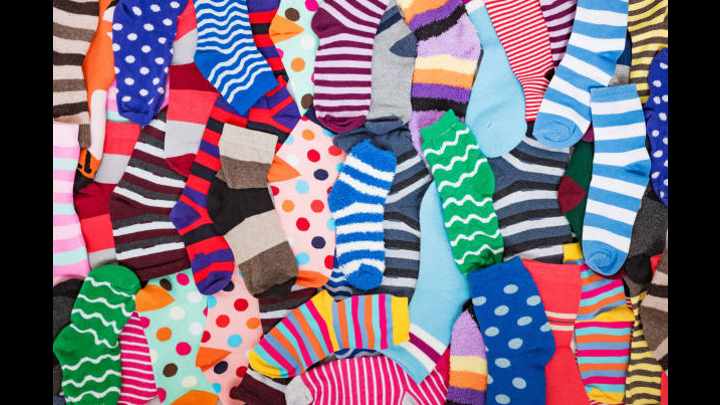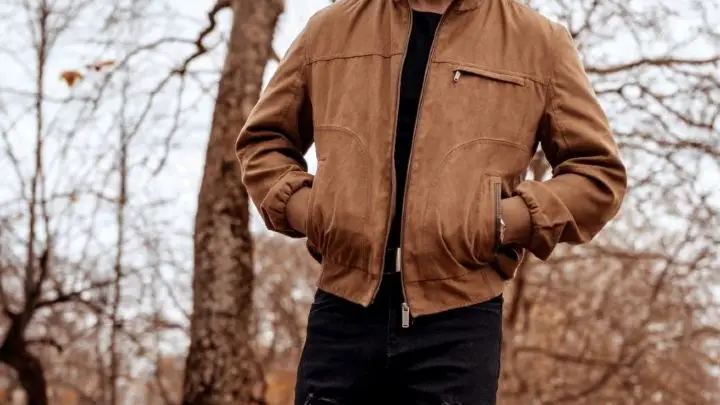Braiding does not cause any direct damage to the hair. Braids are a protective hairstyle that uses extensions to protect your hair from environmental factors that can damage your hair. Everyday activities expose the hair to sunlight and humid air which are not hair-friendly elements.
However, while braids cannot directly damage your hair, they could be the reason why your hair breaks. How your braids were installed, how you style them, and the state of your hair and scalp before braiding can be root causes of hair damage.
In essence, you need to follow the right maintenance pattern for your braids to prevent hair loss and frailty. Continue reading to see answers to your questions on whether braiding will damage your hair.
Does Braiding Wet Hair Damage It?
You should not braid your hair when it is wet. Braiding wet hair may feel easier, especially when you’re sectioning natural hair. Your hair strands are very delicate and prone to breakage when they are wet.
In this fragile state, braiding puts pressure on your strands and wrecks them. Moreover, split ends and hair on the verge of breaking suffer the most. Even worse, a wet scalp can result in fungal infections.
In addition, wet braids feel heavier on the scalp and this weight exerts tensile stress on your hair. Having tight braids on wet hair worsens this pressure and because the hair is already fragile, the braids may begin to fall off. This can lead to hair loss and consequently, reduced hair volume.
Does Braiding Curly Hair Damage It?
Braiding does not damage curls. Braids rather protect your curls and help them to grow. Curls are prone to dryness, frizz, and split ends. And they can be very damaging to your hair. Wearing protective hairstyles like braidings can be just what your curls need.
Hair braiding styles use extensions to keep your hair protected from environmental factors that can cause your hair to become dry and brittle. This helps to retain moisture and keep your curls looking healthy.
Furthermore, wearing braids does not ruin your curls or straighten them. They are very good tamers for flyaways and they help put those bouncy curls together. They are also a relief from the time you’d naturally spend in front of the mirror trying to get your curls in place and look stylish.
Also, when braids are too tight, the pressure on hair can cause hair loss. To be safe, you should not leave your curls in braids for too long. You should carefully take out the braids anytime after four weeks of wearing them.
Does French Braiding Damage Hair?
French braiding is a single braid made with all of your hair. If it is not well and carefully made, it could cause your hair to break. French braids do not put any pressure on your scalp and hair.
Unless individual strands are pulled excessively, this is one braiding style that has little or no damaging effect on your hair.
On the off chance that French braiding damages your hair (cause hair fall), it could be a result of scalp conditions like dandruff. A dry, itchy, and scaly scalp happens when you’ve had braids on your hair for too long without washing your hair.
When dandruff comes off, it usually takes some strands of hair along with it. However, it can be quickly controlled from getting worse by taking off the braids, washing your hair, and applying anti-dandruff hair treatments.
SEE: Want to Relieve Tight Braids? These Amazing Tricks Will Help You Out
Does African Braiding Damage Hair?
African hair braiding styles make the most of the list of protective hairstyles. Box braids, feed-in braids, tribal braids, knotless braids, and many others are examples of such hairstyles.
Knotless braids, most especially, relieve your scalp of the tension from the knots that naturally define braids.
Braids are not supposed to hurt you. However, when you have tight braids on and for too long, it could lead to cases like traction alopecia. Tight braids can also make your scalp dry, itchy, and scaly. Consequently, this can lead to the accumulation of dandruff on your scalp.
If properly done and maintained, braids can foster hair growth. They keep your hair covered in extensions and protected from sunlight and humidity. Moreover, since you can have braids on for weeks, your scalp and hair are protected from the tension of frequent hair styling.
SEE: A List of New and Refreshing Tribal Braids Hairstyles You Should Try
Does Braiding Your Hair Every Night Damage It?
Braiding your hair before you go to bed should not cause any damage if you do the right thing. The braids should feel loose against your scalp to prevent tension, make sure you’re braiding clean hair, and don’t sleep with wet hair.
Additionally, to avoid friction between your hair and the beddings, replace cotton pillowcases with silk. Also, try to take your hands off your hair (especially if you have long nails on) to avoid snagging and pulling out strands of hair.
How to Prevent Braids From Damaging Your Hair
Ask your stylist to make loose braids
Always ask your stylist to braid your hair gently. The braids shouldn’t be tight or put any pressure on your scalp or strands. Making tight braids may sound like a good way to get the braids to last longer, however, it could be bad for your hair.
The tension always leads to irreversible hair breakage. You can also opt for knotless braids to eliminate the tension.
Have a balanced natural hair to extensions ratio
Hair extensions add bulk to your natural hair and that’s the beauty of it. However, when this bulk becomes more than your hair follicles can bear, it’s no longer beautiful. Hair experts advise that you use a balanced ratio to prevent hair breakage.
SEE: Best Hair Extensions to Change Up Your Style
Don’t braid your hair consecutively
Space out your braiding and alternate styles. You should leave at least two weeks between each braiding appointment to allow your scalp and hair to relax. Also, damaged hair should be treated and rejuvenated before you make another hair braiding style.
Create a care routine for your braids
You should have a care routine for your braids to keep your scalp clean and free of build-up. You can start washing your braids after the first week of getting them. Afterward, wash them every two weeks. If you don’t like to get water on your braids, you can use dry shampoo.
In addition, always replenish moisture with a leave-in conditioner on non-wash days. Use lightweight, moisturizing hair oils sparingly to prevent build-up and keep your scalp moisturized.
SEE: Can You Wash Box Braids? Best Way to Care For Braids
Use silk instead of cotton
Always wrap your braids in a silk headscarf or wear a silk head cap. This will protect your hair from friction while you turn your head during sleep. Similarly, replace cotton pillowcases with silk.
Remove braids gently
Carefully take off the braids, especially when you get to the roots. At the roots, the pressure from the knots leaves the hair very delicate. Any pulling or tugging may lead to breakage or hair loss.
FAQs
How often should you braid your hair?
You shouldn’t braid your hair consecutively. Leave at least two weeks interval between each braiding appointment. The time allows your scalp and hair to relax and rejuvenate. Moreover, it helps to prevent hair loss, scalp dryness, and itching.
Are braids good for hair growth?
Yes, they are. Braids protect your hair from the potential damage of exposure to sunlight and humidity. Since you can have braids on for up to six weeks, your scalp and hair can take a break from the pressure of hairstyling.
Does braiding make your hair curly?
Braiding your hair overnight will leave your hair wavy by the morning. It keeps your strands together and stylish. Additionally, leaving braids overnight relieves your hair if the stress of applying heat tools to make it curly.
Conclusion
Braids are classified as protective hairstyles. You can have braids on for up to four weeks, and with proper maintenance, they can last up to eight weeks. Different hair braiding styles cater to different hair types and textures.
Braiding does not damage your hair. However, if the braids are too tight or you tug at them when taking them off, it can damage your strands.
In conclusion, get your braids done with an expert. Also, make sure there is no tension on your scalp and take heed to the preventive tips that will help keep your hair and scalp in good condition.
Africana Fashion has more related articles that give you information on hairstyles and their peculiarities.
